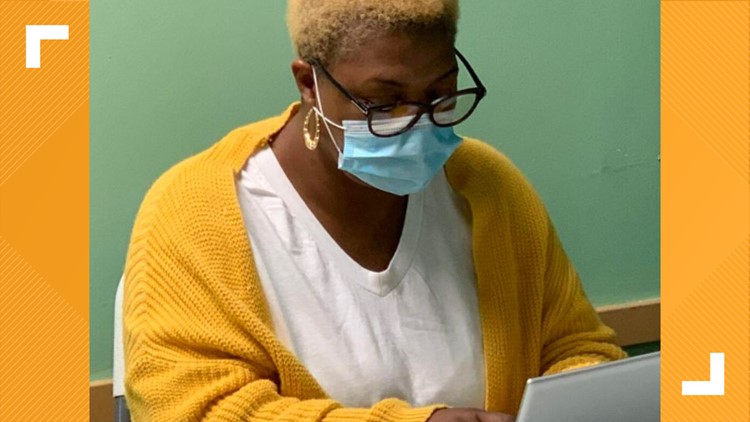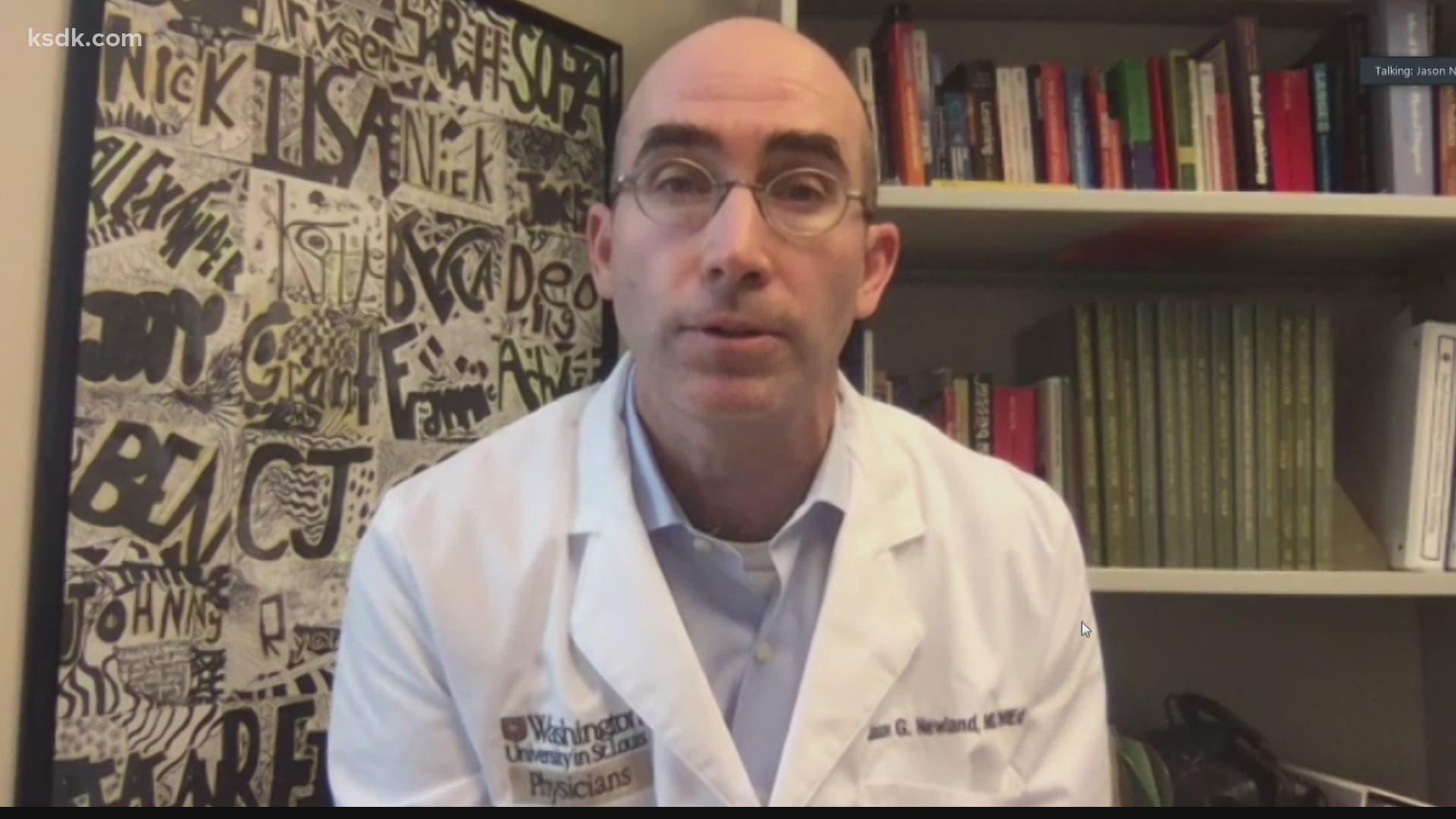ST. LOUIS — For every person who has died from COVID-19 in the United States, there are more than 10 survivors. Although research is ongoing, we know that these survivors must wrestle with damage done to their physical bodies after recovery from the virus.
But what about the damage to the soul and spirit?
In April, as the virus was rapidly spreading in the world, Indian-American author and alternative-medicine advocate Deepak Chopra shared his concerns about the outbreak’s effect on the spirit: “Millions of people experience a sick soul; however, you want to define it — weariness of heart, existential dread, a sinking feeling that nothing really matters.”
For city resident and COVID survivor, Annie Cooper, 47, Chopra’s words ring true.
“I’m never going to be the same,” Cooper said. “My way of thinking is so totally different now. I was a more nonchalant, trusting person but now I feel like I can’t trust anyone. You just never know.”
Cooper worked as a certified medical assistant (CMT) at a nursing home in St. Charles. The facility, she said, was practicing all the recommended safety procedures and she had no valid reason to fear she’d contract the virus.
But, on June 28, she had chills while at work and felt she had a slight fever. She went home and scheduled an appointment with her doctor. He gave her a Z-pack to fight off bacterial infections. She received the positive COVID-19 diagnosis on July 5, but Cooper already knew she had the illness. Although she never ran a high fever, her appetite was gone, and she still had constant chills. She doesn’t smoke or suffer from asthma but felt as if a pallet of bricks rested on her chest.
Cooper was one of the lucky ones. She believes her regimen of vitamins staved off any other symptoms, and she never had to go to the hospital. Because she lives in a three-story house, she was able to quarantine herself from her 18-year-old son and heal on her own terms. After about a month, she felt ready to return to work.
Physically, she had gotten better, but the mental and spiritual damage was overwhelming.
“I was talking to a therapist throughout the whole period. It helped, but not a lot,” Cooper said.
She is not alone. According to the World Economic Forum, more than a quarter of American adults are experiencing COVID-related symptoms of depression, researchers report. Cooper was hyper conscious about re-infection and paranoid about returning to the nursing home. She told her superiors that she would not work on what she called “the COVID floor.” Cooper said there was no sympathy given to her concerns. In fact, she said, attitudes changed, and she was fired two days after her return to work.
“I was confused. They said it was because I was late, but they never wrote me up or anything. They didn’t follow any procedures or protocol for getting fired, no paper trail nothing,” Cooper said. “You want to fire me because I feared for my life and I contracted this virus from your facility?”
Although her sister encouraged her to sue, Cooper declined. Perhaps, she thought, her termination was a good thing.
“I’m not going to lie,” she said. “I was scared. I’m not angry about getting fired because I was nervous about going back anyway.”
The termination provided Cooper with the opportunity to address what Chopra described as a “sick soul.” She had to dig deep to access her self-worth and potential. Cooper said she’s always been an “independent woman.” She was never satisfied with one job and was always seeking ways to supplement her income. She was enrolled in nursing school before those plans got derailed by divorce in 2015. With the help of her older brothers, she had bought and rehabbed properties.
The unplanned firing led Cooper on a search to find a job. She was not only seeking a “good job” but wanted something that could provide a future for herself and her son.
Less than half of the more than 23 million jobs lost since March due to COVID have been recovered. A Harris Poll released in May found that 78% of employed Americans said that they would not consider a job change during the COVID-19 outbreak as long as they can continue to work at their current job. Although Cooper no longer had her job, a career change was a big but necessary step for her.
“My son is so smart. I try to show him that even though I don’t have a degree, there are other ways to supplement your income and make your life better,” Cooper said. “So, I was thinking, ‘What can I do at my age without going back to college?’”
In her online search, Cooper ran across a 10-week pre-apprenticeship program offered by MOKAN, the region’s leading minority contractors association. Something about the minority organization’s commitment to help people of color get into the construction industry and perhaps build their own businesses appealed to her.
The training program prepares students to enter the construction industry. In 10 weeks, students earn all the mandatory safety and regulatory certificates needed to work in sometimes hazardous environments. Annie Cooper is a perfect fit for the program, said MOKAN’s Executive Director Yaphett El-Amin.
“We give people, like Annie, who’s close to 50-years-old, a second chance,” El-Amin said. “Prior to the COVID she was probably looking to retire from the health industry. Now, she has a second chance, a second career opportunity, a chance for expansion and a reconnection with the community. It’s empowering.”
Cooper, who started the MOKAN program last month, said she is grateful for the opportunity to “bounce back.” Her post-COVID anxiety levels, she said, are much better these days. Taking control of her destiny, she said, has proven to be the best therapy.
“I’m very happy and content,” she said, “and I’m moving forward with my life.”
For more information on MOKAN, visit https://mokanccac.org.



